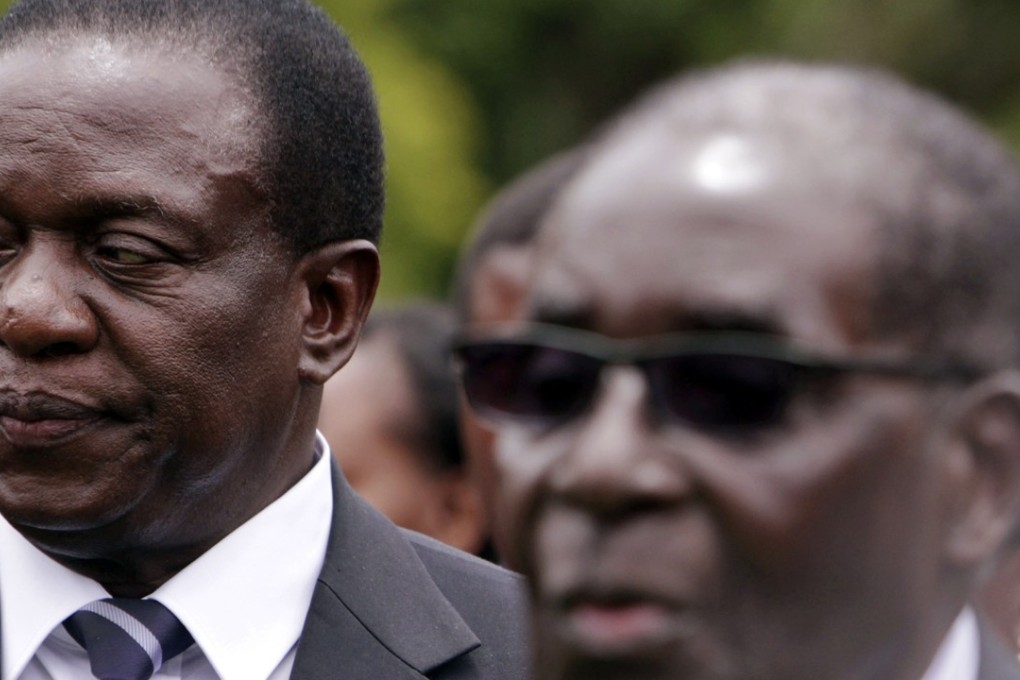Mugabe’s exit will make Zimbabwe even closer to China, say Chinese analysts
Man poised to take over as head of state has previous ties to Beijing and the need to open up the economy will create further opportunities for cooperation, say observers

Robert Mugabe’s resignation in Zimbabwe after 37 years in power is likely to bring the African nation even closer to China, according to Chinese analysts.
Former vice-president Emmerson Mnangagwa is poised to take over as head of state after a military takeover finally forced Mugabe to quit.
China is already Zimbabwe’s fourth largest trading partner and its largest source of overseas investment, but these ties are likely to deepen under the new leadership if it attempts to open up the nation’s stricken economy, analysts said.
Mnangagwa also has ties with Beijing as he received military training in China during Zimbabwe’s fight for independence from colonial and white-majority rule.
Zimbabweans sang and danced in the streets after 93-year old Robert Mugabe announced his resignation on Tuesday.
The military takeover was sparked by the removal of Mnangagwa and fears within factions of the governing ZANU-PF party – particularly in the army – that Mugabe was attempting to make his wife Grace his successor.